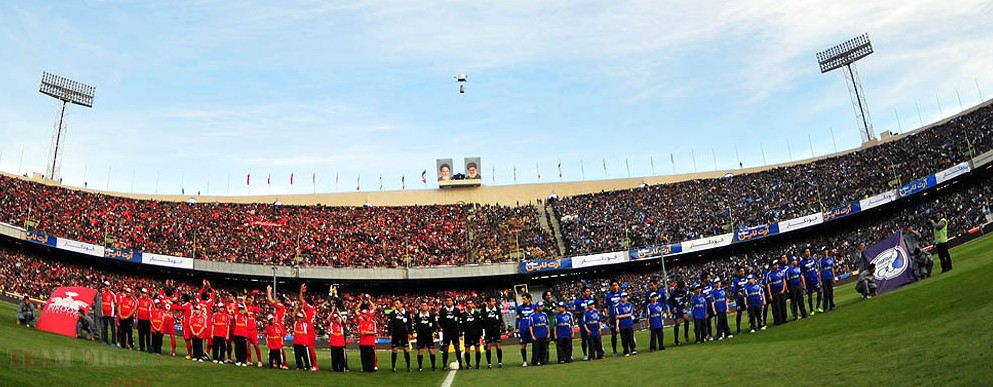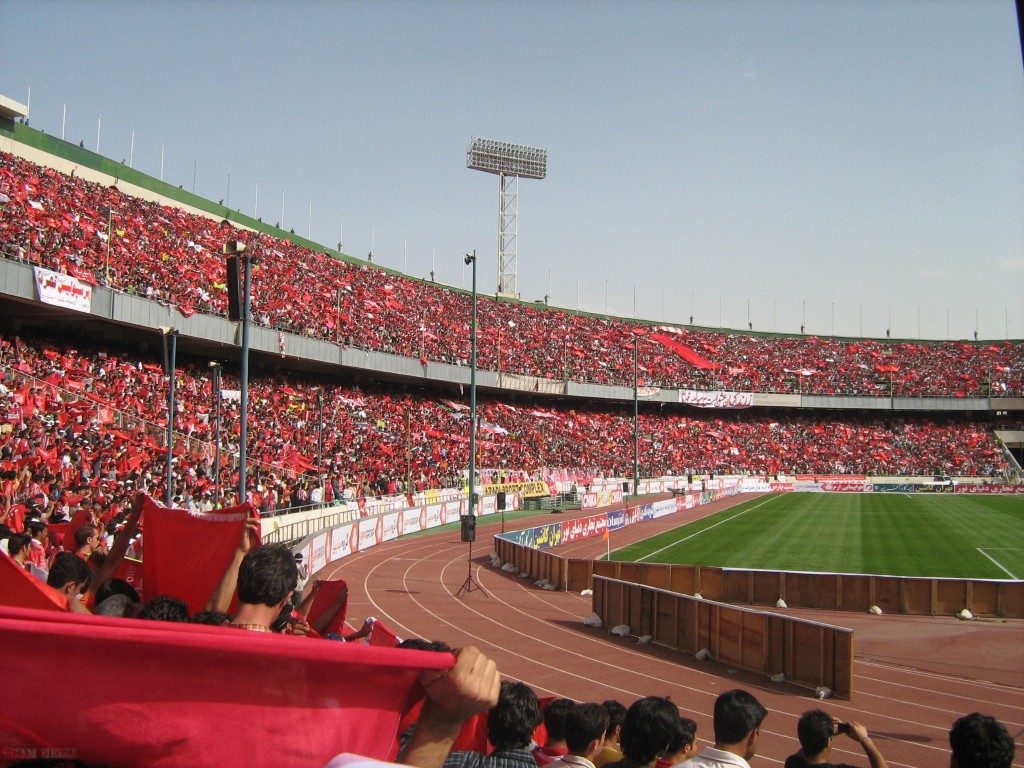Masoud Soltanifar was spot on when he issued instructions to Mehdi Taj and ordered FFIRI to investigate the management calamity that has led to a heavy fine and sanctions by FIFA imposed on Persepolis club that might approach the 800,000 Euro including legal cost.
The Minister of youth and sports was even more judicious and decisive when he demanded, in no uncertain terms, that the football administrators get their act together and start learning the skills of the trade by attending courses or workshop in order to improve their knowledge in international law and football management.
On the surface of things, the reaction of the minister is praiseworthy. Mr. Soltanifar, is more than concerned about the repeated failures of Iranian football management and poor decision making leading to wastage of public funds. Virtually all clubs, but most significantly the two top popular ones, Esteghlal and Persepolis, are run by the government in some form or another. As such this control has cost the public coffers tens of millions of dollars in expenditure and wastage. There is another motive for issuing the order by Mr. Soltanifar. He is, no doubt bracing himself for questioning in the Majlis (the Parliament) by members who will question his authority and criticize his role in this humiliation.
Indeed, humiliation is the right phrase used by no other than Carlos Queiroz to describe this whole affair.

However, on close scrutiny of this event and the subsequent reaction by the Minister, it seems that this is a clear case of self-incrimination.
The individuals who are running Persepolis are appointees of the Ministry in the first place. The Youth & Sports Minister approves the Chief Executive, board member and major posts in the club, and hence he is directly accountable for the actions by the club. It is him that has failed to appoint a competent team of administrators and it is appropriate that he is questioned and held accountable for this fiasco.
Those who run football in Iran, particularly Esteghlal and Persepolis clubs, from directors to key administration personnel, are mostly political appointees. Rather than competency or merit based appointments, the candidates for the posts are either ex revolutionary guards’ commanders, military, police or government employees who have served the regime and in returned are rewarded for their loyalties. This might work if those people are competent and experienced in this field. There is no place for entrepreneurs, businessmen or professionally trained and experienced executives in the boards of Persepolis and Esteghlal. It is more important to be a pious man who does not miss his prayer rather than being a capable manager with knowledge in marketing, financing, legal affairs and public relations talents. There is a distinct lack of personnel who can run clubs as corporate entities.
It is not surprising that fiascos such as this can be committed by the likes of Mehdi Taj, Ali Kaffashian and Ali Akbar Taheri. A person such as Mohammad Rouyanian, led Persepolis to the verge of bankruptcy while at the helm of the club a few years back. The affairs in the other popular club , Esteghlal, is not much better. The Minster and the government must shoulder the responsibility especially since the concern is wastage of public funds that can be used in much needed areas of football development (such as having a decent training ground for Team Melli)
The lack of accountability is quite rife in Iran’s football. It is indeed rare for a coach, Chairman or an accountable manager to accept responsibility for a failure and resign his post. All those aforementioned have one undeniable skill and that is bargaining! The word Chaneh, meaning bargaining or lack of a better term, maneuvering, dodging and evading an issue by the use of justification, excuses and pleas. This is instilled in the Iranian culture and accepted in the bazzar when buying a commodity but it is also widely used in business and administration process. It is a trait that takes those who excel in it to great heights in the hierarchy. With maneuvering and use of words and terms, these people get away with murder. Fortunately, in international law, there is no place for such maneuvering and that is where Iran football gets caught. The suspension of Iran by FIFA post Word Cup 2006 is still fresh in the memory.
It is not that Iran lacks managerial and administration skills to run a successful football club or football federation.
When the country has the likes of Mohammad Javad Zarif and his team of negotiators on the nuclear deal who have done the nation pride by their skills, professionalism, knowledge and proficiency that has gained the respect of the whole world, it is pity that such skills are nowhere to be seen in football administration which is now a global multibillion dollar business and not just purely a sport.
The government has no business running football in Iran, not in any other country for that matter. By owning and running sports clubs, there is a great responsibility that has to be accomplished in a successful manner. The reality is that the government has a vivid lack of vision, tools and competency in doing so. Their priorities are focused on security and fear of expression of discontent leading to mass revolt. It might be a legitimate right for the regime to protect itself, but by controlling football clubs and federation, it is exposing itself too . The government should have much more important functions and priorities other than running Esteghlal and Persepolis.
Yes Minister. You are correct in your demands for answers. But it is a step too late. In corporate terms, this is a reactive measure rather than proactive. Even if there is partial success in reducing the penalties, it only serves as a cover for the real perennial problem in Iran’s football…incompetent management.


